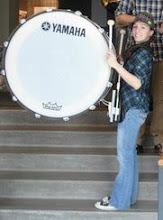Or at the very least, the spare change under the couch cushions.
Over the past century or two, Americans have adapted to a consumerist society. They always have to have more of the new, the latest, the cutting edge. And when they discard the old, all of those items end up in Goodwill, or simply in a landfill where they may sit and rot for up to a thousand years or more.
This is where the truly thrifty can benefit.
Being college students, my friends and I have discovered a myriad of ways to benefit from the wastefulness of others. I share some of these tips below.
1) Freeganism aka dumpster diving. Much of what people throw away ends up in dumpsters in alleys or behind buildings, waiting to be hauled off to the dump. If you're not afraid to get messy (and come on, people and clothing are washable) you can score some pretty sweet stuff. Some people go to the extreme of only eating food that has been collected from dumpsters. Many others are satisfied with acquiring still-operational electronics, clothing, toys, books, appliances and more.
Watch for posted signage and check local laws regarding this activity before you go; a number of cities have outlawed dumpster diving. Also, be kind, don't leave a mess.
A similar principle involves scoping out curbsides. Often, people will leave things they want to dispose of out by the curb, free to whoever wants to come haul it away. Again, be courteous if you do this. Only take items that have been specifically designated as free for the taking, or that have been announced; you don't want to be caught trying to steal something.
To find opportunities like this in your area, check the "free" section of your local craigslist or newspaper classifieds or ask around. Prime territory includes dorms and apartments on or near college campuses between May and June, when school ends and students move out or home for the summer.
2) Check your recycling bin to see if containers can be repurposed with a good cleaning or slight modification. Plastic yogurt, butter and sour cream/cottage cheese containers, as well as the plastic containers that Healthy Ones meat comes in, make excellent storage containers for leftovers. I've turned empty glass pop bottles and sparkling cider bottles into funky vases. Glass jars can enjoy a new life as storage containers or interesting drinkware. Learn to look at everyday castoffs in new ways and you'll find yourself saving money and discarding less.
3) Ask family or friends, especially those who are moving or downsizing and don't want to pack up and transport more than they need to. I've gotten dishes, games, camping gear, food, books, kitchen items and furniture. Moving sales are golden because a lot of times the "free" box will be more full than usual with useful items that the owner is in a hurry to get rid of.
That's all for today. Hopefully posts will become much more frequent (I realize it's been almost a year since this blog has seen any action.) With my stepdad getting ready to join my mom in Kodiak, Alaska, and me preparing for a move of my own and living in a new apartment on a very limited budget, I hope to be inspired more and more every day.
Also: I strongly recommend the book Chick Living by Kris Koederitz Melcher. It's an Amazon bestseller, although I picked up my copy at Smith Family Bookstore here in Eugene (I'm always a fan of buying used and local, especially when it's a lot cheaper than buying new from a big-box retailer.) The book and the accompanying website, which I linked to above, provides lots of great hints for living in style on a budget. It's great for singles and new college grads, although I think a lot of the tips could help anyone interested in a frugal lifestyle.
Tuesday, July 6, 2010
Have it all...for nothing at all!
Posted by Nicole at 7:15 PM 0 comments
Subscribe to:
Comments (Atom)
